Ginger Powder Benefits: 14 Powerful Health And Culinary Uses
From soothing stomach irritation and headache to its many culinary uses – this is a multipurpose spice.
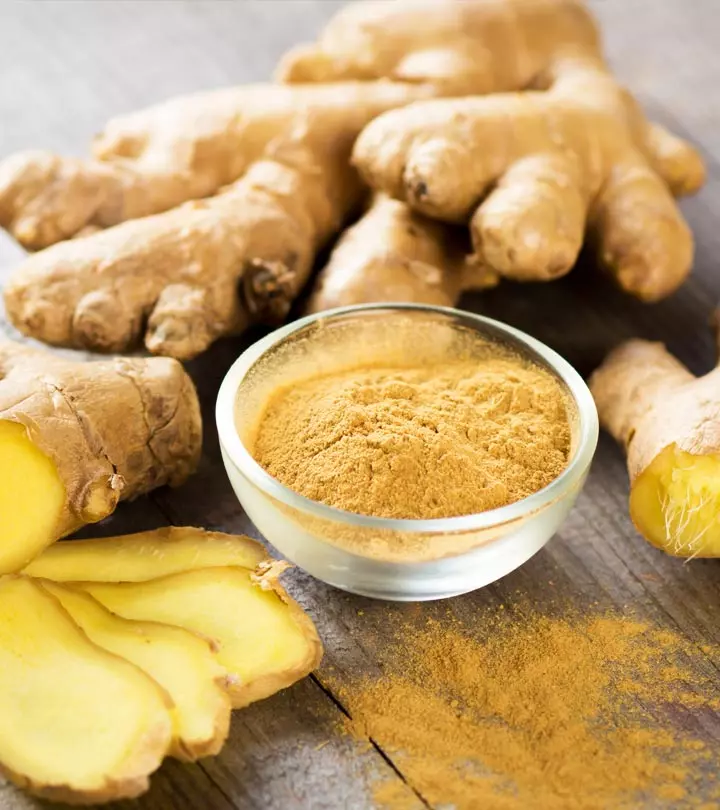
Image: Shutterstock
Ginger powder is made from dried ginger root. Fresh ginger root is usually sundried and then ground up to get a fine white powder. It is used in many cuisines. Ginger powder’s benefits are numerous and gaining the attention of many health enthusiasts. This powder is majorly preferred because of its long shelf life. It is called sonti in Telugu, shunti in Kannada, soonth in Gujarati, suntha in Marathi, saunth in Hindi, and chukku in Malayalam. Learn more about ginger powder and the array of benefits it offers from the article below. Scroll down!
 Know Your Ingredient: Ginger Powder
Know Your Ingredient: Ginger PowderWhat Is It?
A light yellow powder made from grinding sun-dried ginger with a strong spicy aroma.
What Are Its Benefits?
It helps relieve colds and headaches and reduces the risk of cardiovascular diseases and flatulence.
Who Can Use It?
Anyone can take it except people on antibiotics, blood thinning, and diabetes medications.
How Often?
You can use 3 to 4 grams of ginger powder for cooking daily.
Caution
Overconsumption may lead to heartburn, palpitations, and increased body heat.
In This Article
Benefits Of Ginger Powder
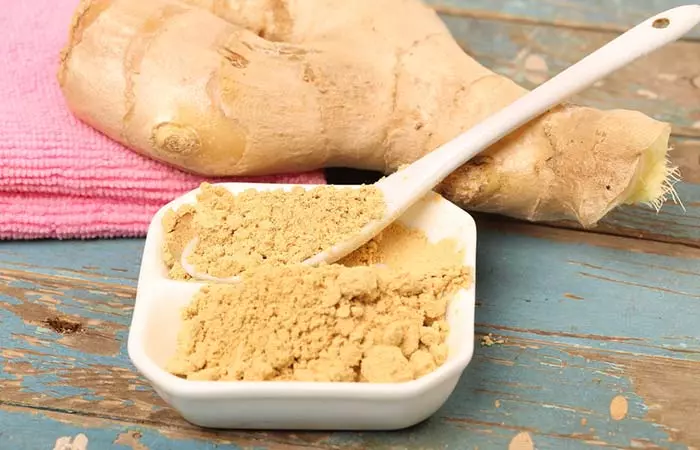
Ginger powder is packed with beneficial vitamins and minerals and is a popular herbal medicine. Let us look at the top 14 best ginger powder benefits:
1. Culinary Uses
- Dried ginger powder is used in spices and masalas for gravies, curries, marinades, stews etc.
- Mix cinnamon, fennel, cardamom and cloves to make masala tea with powdered ginger
- Marinades for Tandoori starters, vegetarian and non-vegetarian.
- Used to flavour ginger breads.
- Dried ginger root powder is also used for food preparations for expecting women and feeding mothers.
- Dried ginger powder is used for adding flavor to a variety of baked dishes like ginger cookies and ginger candies (1).
 Trivia
Trivia2. Toner
Ginger powder boosts skin health. It improves skin elasticity and boosts skin hydration levels too. Boil two teaspoons of dry ginger powder in 4 cups of water. Reduce this till it becomes half. Strain and cool; now add a few drops of lavender or rosemary oil. Mix all these ingredients well and store it in a glass bottle. Refrigerate this toner and apply with cotton on the face. This protects the skin, removes impurities, hydrates it, reduces dryness and tones it (2).
3. Stomach Irritation
Dry ginger powder may help improve symptoms of dyspeptic, a type of chronic indigestion that lead to bloating and stomach discomfort (1). Mix it with sugarcane juice and consume the mixture every day early in the morning to get relief from stomach irritation.
4. Headache
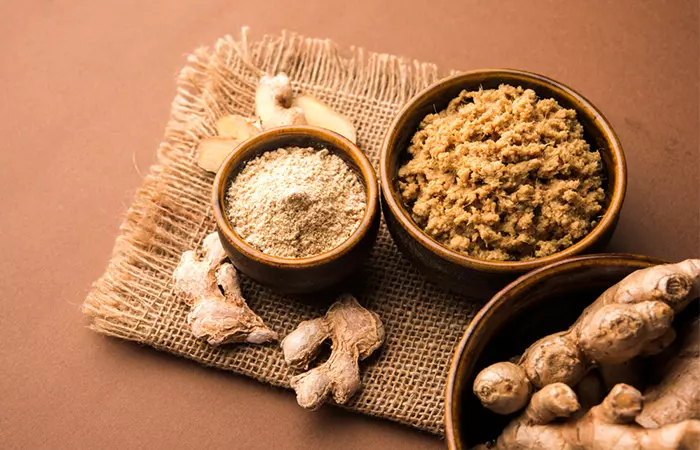
One of the best benefits of ginger powder is relieving headache. The most common problem of headaches can be cured by applying the powder paste on the forehead. This therapy is used to cure headaches. You can also apply the paste on your throat to relieve throat pain (2).
 Trivia
Trivia5. Chest Pain
Many anecdotal studies suggest that dry ginger powder helps alleviate chest pain that occurs due to gastrointestinal issues. This effect could be attributed to the anti-inflammatory properties of dry ginger. However, limited data is available to prove this claim.
Mary Sabat, RDN, says, “At this time, there is not enough scientific evidence to say that ginger powder lowers blood pressure or is good for your heart. Some studies have suggested that ginger powder may have a beneficial effect on blood pressure and heart health, but further research is needed to confirm this.”
Mix dry ginger powder and sugar with tender coconut water and drink it.
6. Anti-Inflammatory
Dry ginger powder contains anti-inflammatory properties that can soothe arthritis and boost joint health.
Add 2-3 tablespoons of this powder in water and bring it to a boil. Drink this water to help soothe the swollen joints. You can also apply the paste on the swollen knee joints for pain relief (3). Anecdotal evidence suggests that it may also help with muscle soreness.
7. Common Cold
Ginger powder is one of the common ingredients found in your kitchen which helps treat the symptoms of common cold (4).
- You can consume raw ginger, however, many people find that too strong for their taste. You can instead reap ginger tea benefits, one of which is relief from cold, by making a cup and drinking it several times a day.
- You can also make a paste of dry ginger powder, clove and salt and consume this twice a day to relieve cold symptoms.
- Another method to cure this is to mix dry ginger powder with jaggery to cure a running nose.
8. Metabolism

Dry ginger powder contains thermogenic agentsi They boost thermogenesis (heat production in organisms) and raise the rate at which the body burns calories. that are useful to burn fat and treat obesity. Take this powder to increase metabolism rate that will help burn off the stored fat in the body. This is also useful to reduce cholesterol and triglyceridei The body gets its energy from fats called triglycerides which can be both created by your body or obtained from food. levels in the body (5). Anecdotal evidence suggests that it may help boost gut health and improve nutrient absorption as well.
9. Ginger Powder For Weight Loss
One of the effective benefits of ginger powder is aiding in weight loss. Ginger powder tea is one of the remedies to lose weight. Add ½ teaspoon of dry ginger powder in a cup of hot water. Dissolve this properly and drink this everyday for weight loss. This tea can also be sweetened with honey, if required (5).
Vijeta Goyal, a blogger, shares her experience of using ginger powder tea for weight loss. She writes,“I am re-thinking and appreciating the power of ginger and all the benefits it provides us with…. If you drink a cup of ginger tea after each meal, it can prevent bloating and support digestion. I favor drinking a cup of ginger tea in the evening when I would like some energy from within the body! (i).”
 Did You Know?
Did You Know?10. Flatulence
- Ginger powder has anti-flatulence properties. Mix dry ginger powder and a pinch of asafoetida and black salt in warm water to reduce flatulence (6).
- Mix dry ginger powder with half a teaspoon of carom seeds and 2-3 drops of lemon juice. Make a thick paste and dry it in the shade. Consume 1 gm of this every morning and evening with salt to help reduce symptoms of flatulence.
11. Urinary Infections
Dry ginger powder can be added to milk and sugar to get rid of urinary infections (7).
12. Ginger Baths
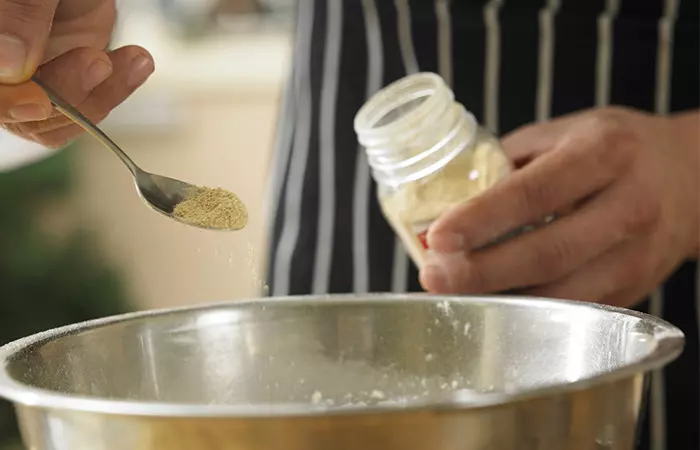
Take 1 tablespoon of dry ginger powder and mix it with an equal amount of baking soda. Slowly and gently rub the mixture on your body or use it as a ginger face mask to cleansing your facial skin effectively (11).
13. Migraine
Take 2 tablespoons of dry ginger powder with warm water before the onset of migrainei An extremely painful headache frequently accompanied by vomiting and sensitivity to light and sound. pain (8).
14. Acne
the skin in many ways. They have anti-inflammatory and antibacterial properties to help unclog pores and kill acne-causing bacteria (9).
Mix milk powder and dry ginger powder to make a smooth paste. Apply on a clean face and neck and leave it for 15-20 minutes. Wash and apply facial moisturizer. Use this once a week to reap the antimicrobial benefits and clear acne and breakouts. This mask will rejuvenate your skin and renew the skin cells to give your skin a youthful glow.
Anecdotal evidence suggests that ginger powder may help boost nail health and hair health as well. It supports respiratory health by suppressing inflammatory and allergic reactions associated with asthma (3). Ginger bolsters anti-oxidative stress and has a high amount of total antioxidants (3.85 mmol/100 g) (3). It shows anti-constipation, anti-nausea, and anti-vomiting properties (3). It has antiviral and antifungal properties as well (10). Ginger can even play a major role in cancer prevention (3).
Ginger has a rich nutritional profile that may contribute to your overall health and well-being. But do ginger supplements provide the same benefits? Check out the next section to find out.
Key Takeaways
- Dry ginger powder helps with digestive problems and reduces inflammation.
- The anti-inflammatory property of dry ginger powder when mixed with water can relieve arthritis pain and reduce joint swelling.
- Ginger powder is commonly mixed and used to treat signs and symptoms of the common cold
- The thermogenic agents in dry ginger powder help to increase the metabolism rate, burn fat, and treat obesity.
- Ginger is frequently used in the kitchen for making candies, curries, marinades, stews, masala tea, and gingerbread and other baked goods.
Ginger Supplements: Are They Effective?
Many people use ginger supplements to relieve symptoms of motion sickness, morning sickness, and chemotherapy-induced nausea (11), (12), (13). They come in the form of capsules, powders, and extracts. Studies suggest that a dosage between 0.5–1.5 g may help reap its health benefits (14). However, consult a doctor before incorporating ginger supplements into your routine, especially if you have underlying health conditions or take certain medications.
Ginger and its supplements are beneficial. But do they carry any potential side effects? Learn about it in the next section.
Risks And Side Effects Of Ginger Powder
Ginger powder is generally safe to use. However, its overconsumption may lead to side effects, such as gastrointestinal discomfort, heartburn, and diarrhea. People with a ginger allergy should also avoid it to prevent adverse reactions. Studies show that it may lower blood pressure and glucose levels, and cause an irregular heartbeat in some cases (15). It may also interact with anticoagulant and antiplatelet medications and increase the risk of bleeding (15). So, before you decide to consume ginger powder, always consult a healthcare expert.
Infographic: Ginger Powder
Ginger powder is a strong spice that may be used as a traditional home remedy for many ailments. It can help address many problems and has a rich nutritional profile.
Check out the infographic below to learn more about ginger powder, its nutritional value, how to prepare it at home, and some of its potential negative effects.
Some thing wrong with infographic shortcode. please verify shortcode syntax
The benefits of ginger powder are numerous. It can add a unique flavor to various dishes. It is also an effective toner. Dry ginger powder can soothe stomach irritation, headache, and the common cold. It also revs up metabolism and has anti-inflammatory properties. In addition, ginger powder is effective for weight loss, flatulence, urinary infections, migraine, and acne. You can also mix it with baking soda for skin cleansing. Try including ginger powder in your diet and skin care regimen to reap its benefits.
Frequently Asked Questions
Is powdered ginger as good as fresh ginger?
No. Powdered ginger contains fewer essential oils and bioactive compounds than fresh ginger.
How much ginger powder should I take daily?
Taking no more than 2 teaspoons of ginger powder per day is safe and beneficial to health.
Is ginger powder the same as ground ginger?
Yes. The terms are used interchangeably and mean the same.
How much powdered ginger equals a tablespoon of fresh ginger?
For every 1 tablespoon of fresh ginger in a recipe, use 1/4 teaspoon of powdered ginger.
Illustration: Benefits Of Ginger Powder (Sonth) For Skin And Health
_for_skin_and_health_illustration.jpg.webp)
Image: Stable Diffusion/StyleCraze Design Team
Learn how to make delicious recipes with dried ginger powder and reap the health benefits! Discover how to make the most of this amazing spice by clicking on the video below.
Personal Experience: Source
StyleCraze's articles are interwoven with authentic personal narratives that provide depth and resonance to our content. Below are the sources of the personal accounts referenced in this article.
i. Ginger Tea— An Amazing Ingredient and Secret For Mental And Physical Health, Including Weight Losshttps://medium.com/@vijeta.goyal5/ginger-tea-an-amazing-ingredient-and-secret-for-mental-and-physical-health-including-weight-loss-4b7076ef959
References
Articles on StyleCraze are backed by verified information from peer-reviewed and academic research papers, reputed organizations, research institutions, and medical associations to ensure accuracy and relevance. Read our editorial policy to learn more.
- Effect of ginger on gastric motility and symptoms of functional dyspepsia
https://www.ncbi.nlm.nih.gov/pmc/articles/PMC3016669/ - Effect of Treatment with Ginger on the Severity of Premenstrual Syndrome Symptoms
https://www.ncbi.nlm.nih.gov/pmc/articles/PMC4040198/ - The Amazing and Mighty Ginger
https://www.ncbi.nlm.nih.gov/books/NBK92775/ - Levels of essential and non-essential metals in ginger (Zingiber officinale) cultivated in Ethiopia
https://www.ncbi.nlm.nih.gov/pmc/articles/PMC4356677/ - Ginger consumption enhances the thermic effect of food and promotes feelings of satiety without affecting metabolic and hormonal parameters in overweight men: a pilot study
https://pubmed.ncbi.nlm.nih.gov/22538118/ - Ginger in gastrointestinal disorders: A systematic review of clinical trials
https://www.ncbi.nlm.nih.gov/pmc/articles/PMC6341159/ - Phytochemical Constituents and Antibacterial activity of Ginger (Zingiber 1 officianale) Extract on Selected Clinical Isolates Associated with Urinary 2 Tract Infections (UTI S )
https://www.researchgate.net/publication/342130552_Phytochemical_Constituents_and_Antibacterial_activity_of_Ginger_Zingiber_1_officianale_Extract_on_Selected_Clinical_Isolates_Associated_with_Urinary_2_Tract_Infections_UTI_S - Ginger for Migraine
https://www.researchgate.net/publication/356649638_Ginger_for_Migraine - Antimicrobial Activity of Ginger (Zingiber Officinale Roscoe) and Turmeric (Curcuma Louga) Extracts Against Propionibacterium Acnes Isolates from Human Pimples, Abuja, Nigeria
https://www.researchgate.net/publication/356493901_Antimicrobial_Activity_of_Ginger_Zingiber_Officinale_Roscoe_and_Turmeric_Curcuma_Louga_Extracts_Against_Propionibacterium_Acnes_Isolates_from_Human_Pimples_Abuja_Nigeria - Bioactive Compounds and Bioactivities of Ginger (Zingiber officinale Roscoe)
https://www.ncbi.nlm.nih.gov/pmc/articles/PMC6616534/ - Clinical Evaluation of the Use of Ginger Extract in the Preventive Management of Motion Sickness
https://www.sciencedirect.com/science/article/pii/S0011393X20300175 - The Effectiveness of Ginger in the Prevention of Nausea and Vomiting during Pregnancy and Chemotherapy
https://www.ncbi.nlm.nih.gov/pmc/articles/PMC4818021/ - Effects of Ginger Intake on Chemotherapy-Induced Nausea and Vomiting: A Systematic Review of Randomized Clinical Trials
https://www.mdpi.com/2072-6643/14/23/4982 - Ginger on Human Health: A Comprehensive Systematic Review of 109 Randomized Controlled Trials
https://www.ncbi.nlm.nih.gov/pmc/articles/PMC7019938/ - Ginger root
https://www.ncbi.nlm.nih.gov/books/NBK565886/
Read full bio of Dr. Pallavi Srivastava
- Mary Sabat, MS, RDN, LD, is a registered dietitian and a certified in personal training by the American Council of Exercise. She has 30 years of experience in nutrition education, wellness coaching, fitness training, holistic health, and weight loss coaching. She obtained her bachelor's degree in Dietetics and Nutrition from the University of Delaware and master’s degree in Human Nutrition with an emphasis on Exercise Science from Rutgers University.
 Mary Sabat, MS, RDN, LD, is a registered dietitian and a certified in personal training by the American Council of Exercise. She has 30 years of experience in nutrition education, wellness coaching, fitness training, holistic health, and weight loss coaching. She obtained her bachelor's degree in Dietetics and Nutrition from the University of Delaware and master’s degree in Human Nutrition with an emphasis on Exercise Science from Rutgers University.
Mary Sabat, MS, RDN, LD, is a registered dietitian and a certified in personal training by the American Council of Exercise. She has 30 years of experience in nutrition education, wellness coaching, fitness training, holistic health, and weight loss coaching. She obtained her bachelor's degree in Dietetics and Nutrition from the University of Delaware and master’s degree in Human Nutrition with an emphasis on Exercise Science from Rutgers University.
Read full bio of Tanya Choudhary
Read full bio of Ravi Teja Tadimalla
Read full bio of Moksha Gandhi






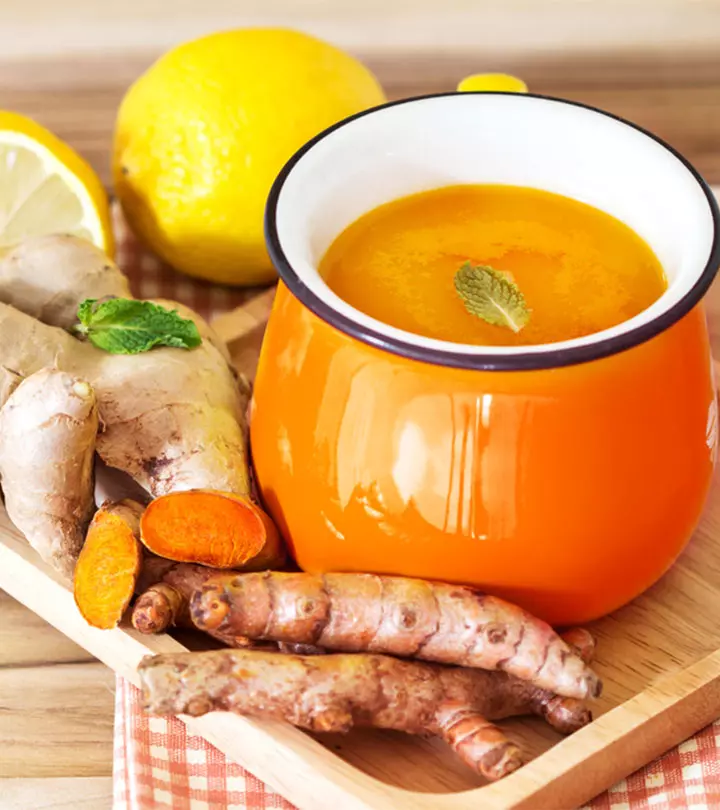
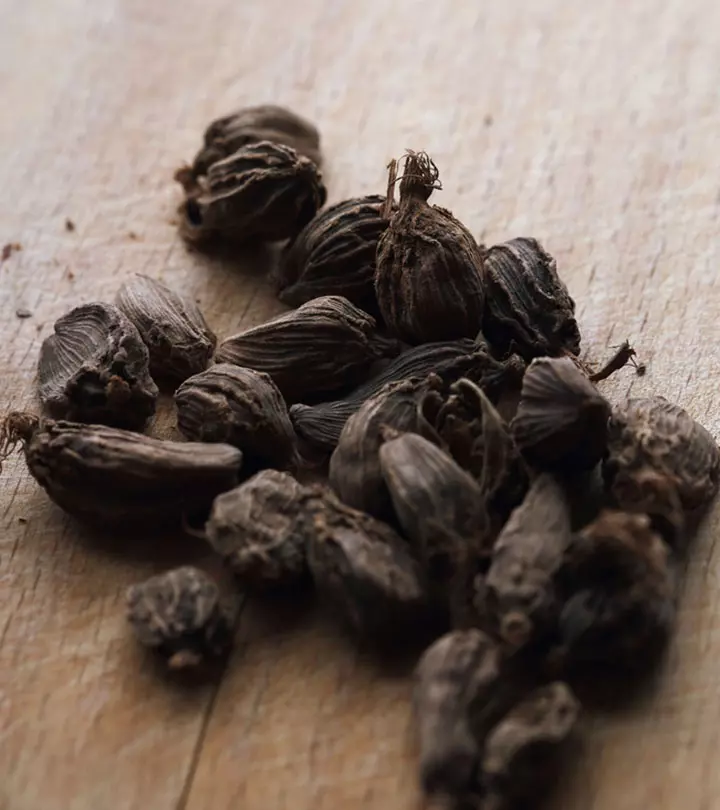
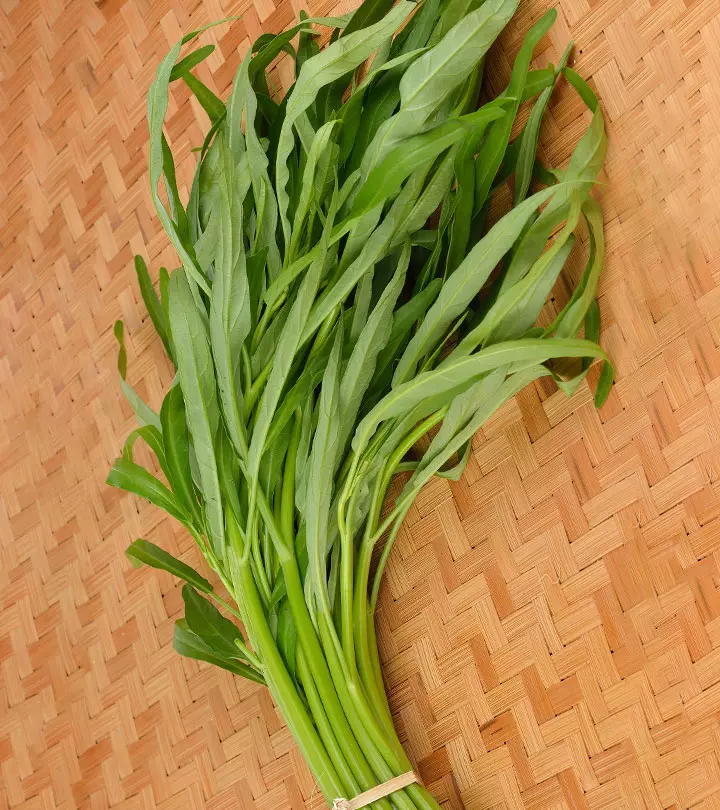

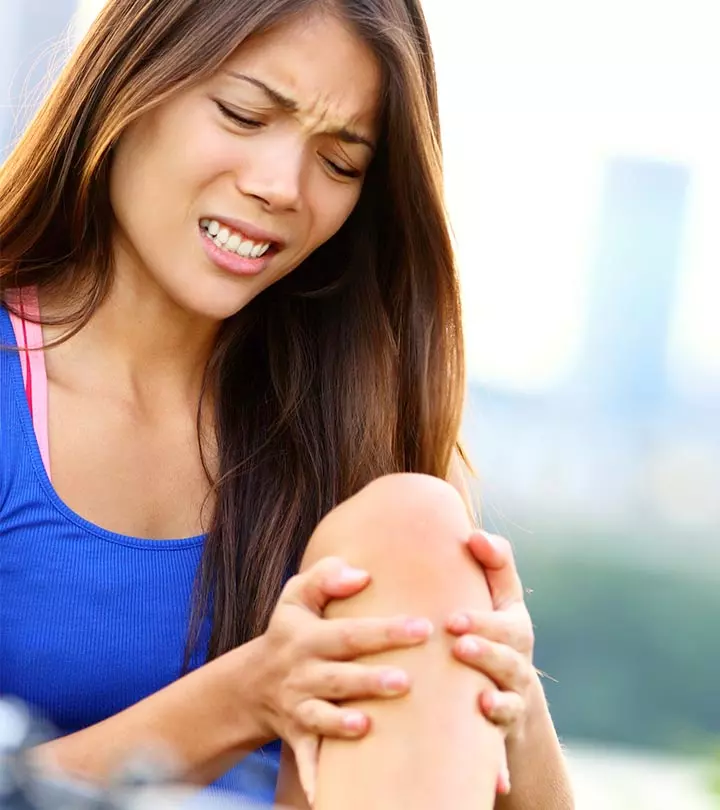
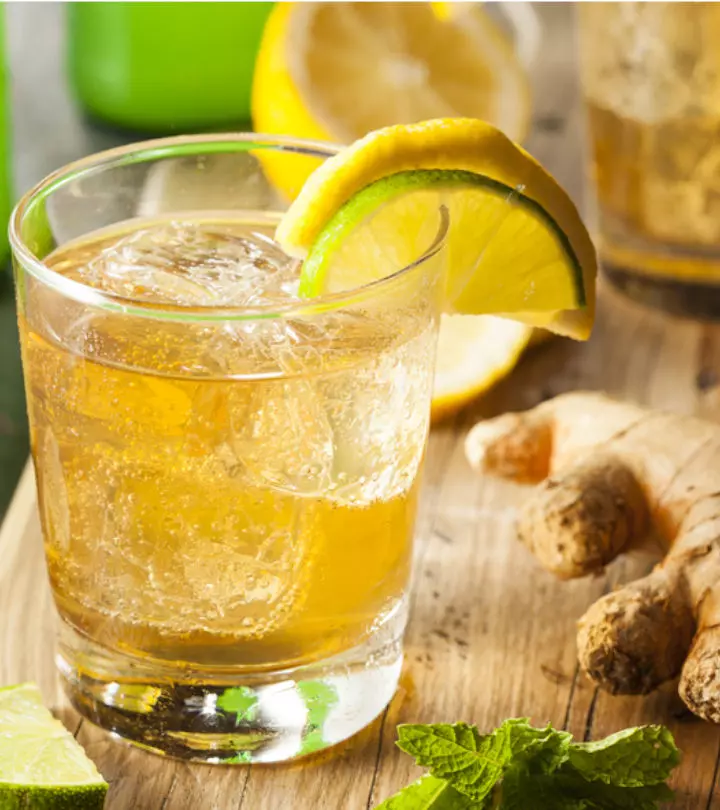
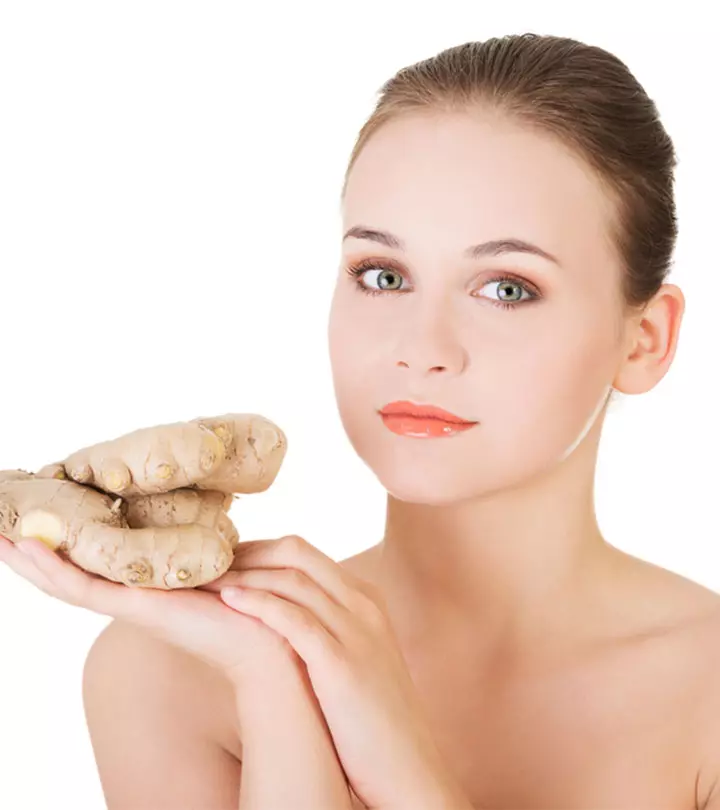
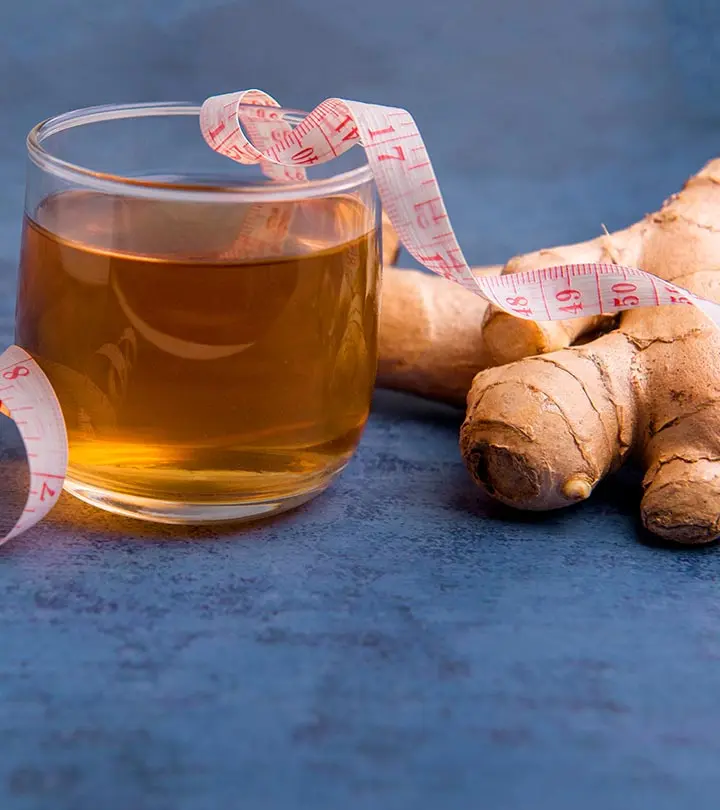
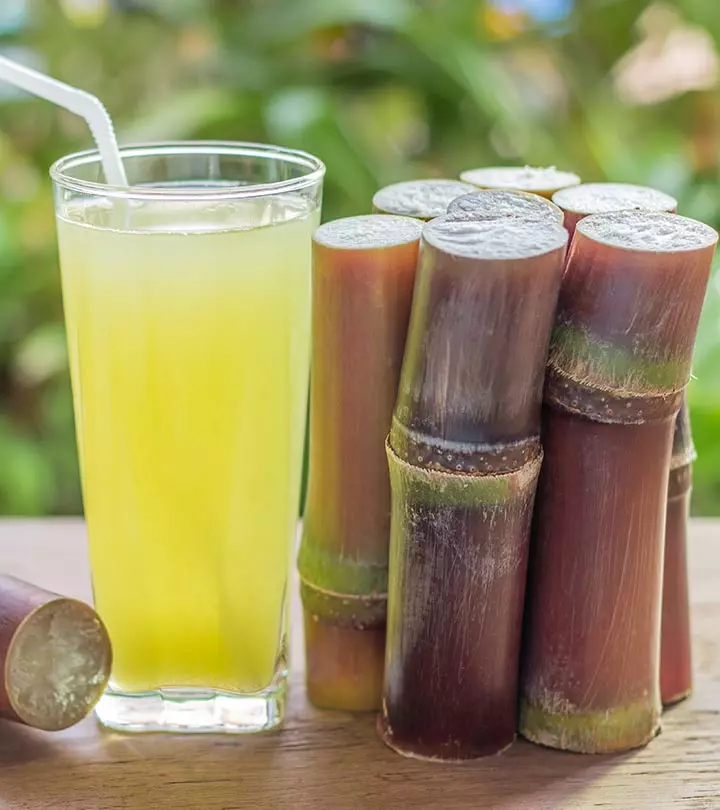
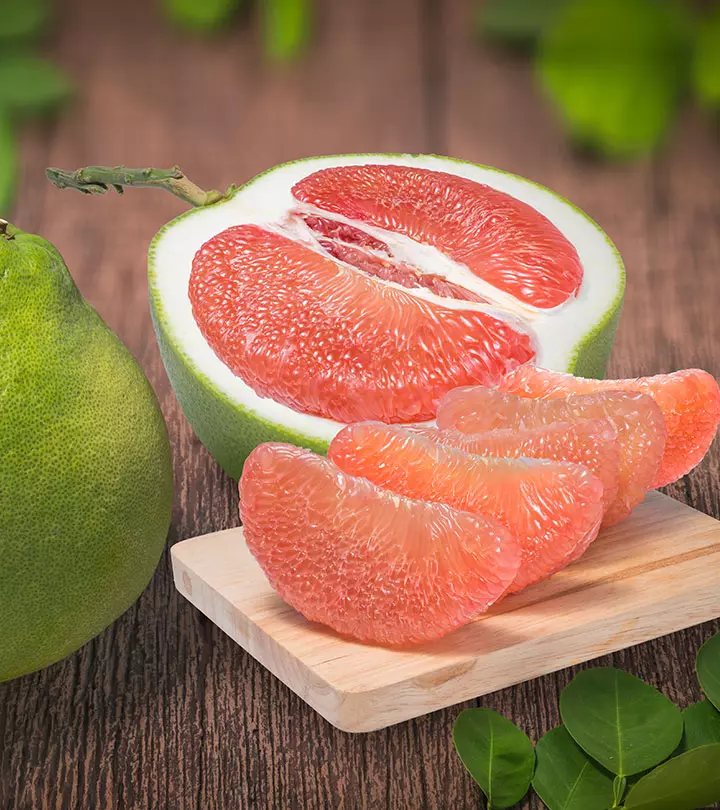
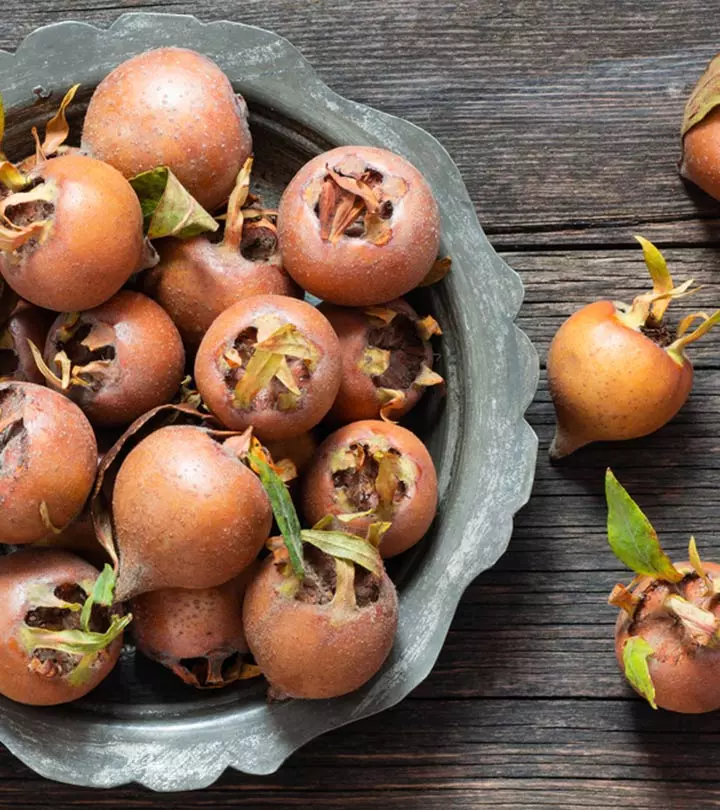
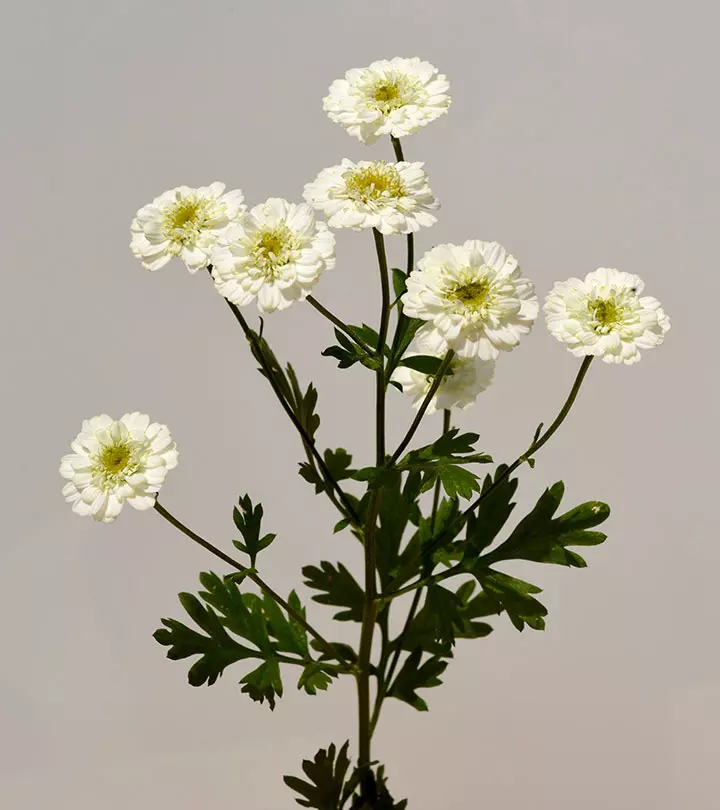
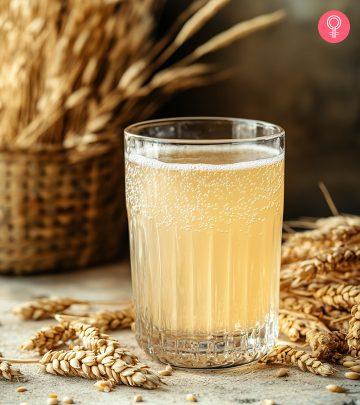
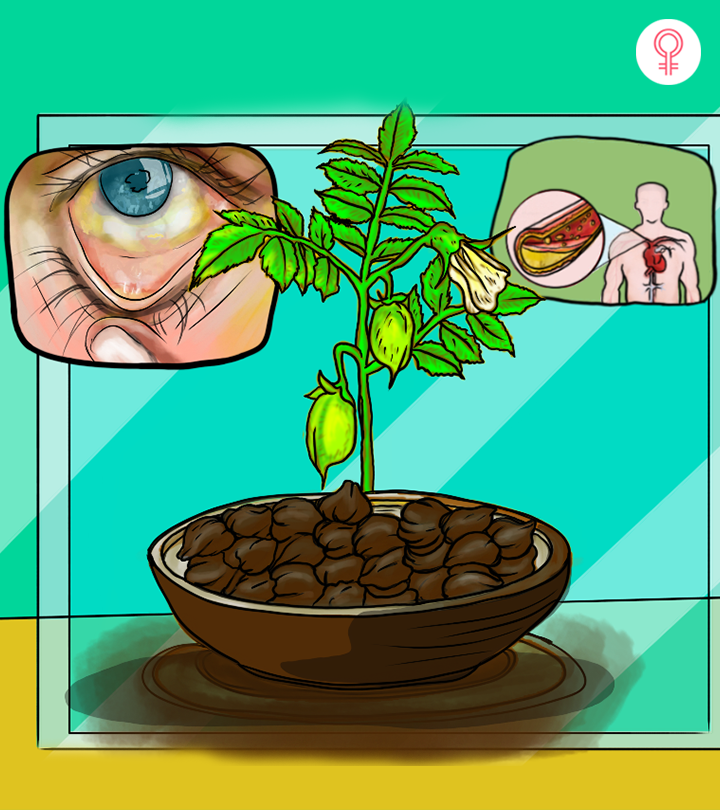
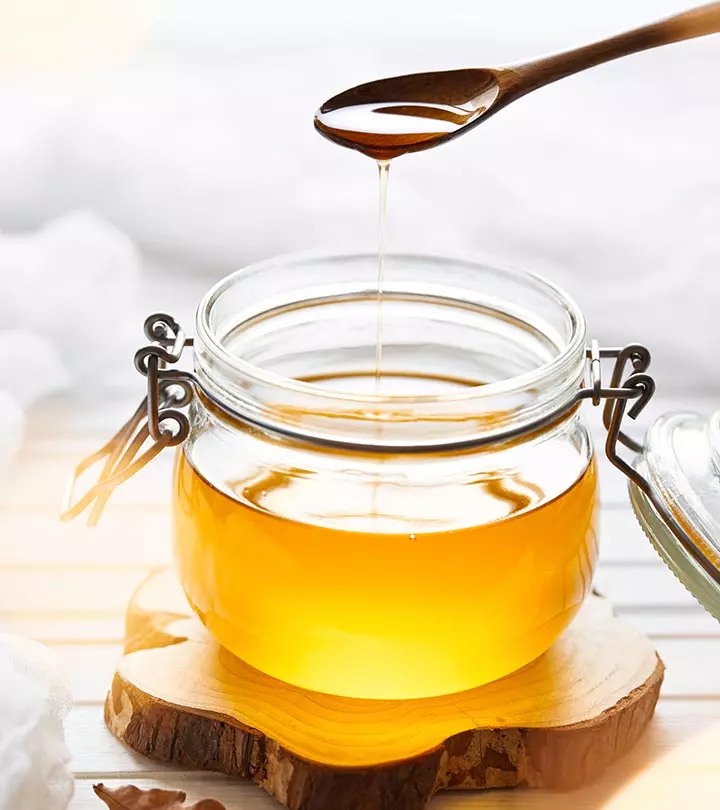
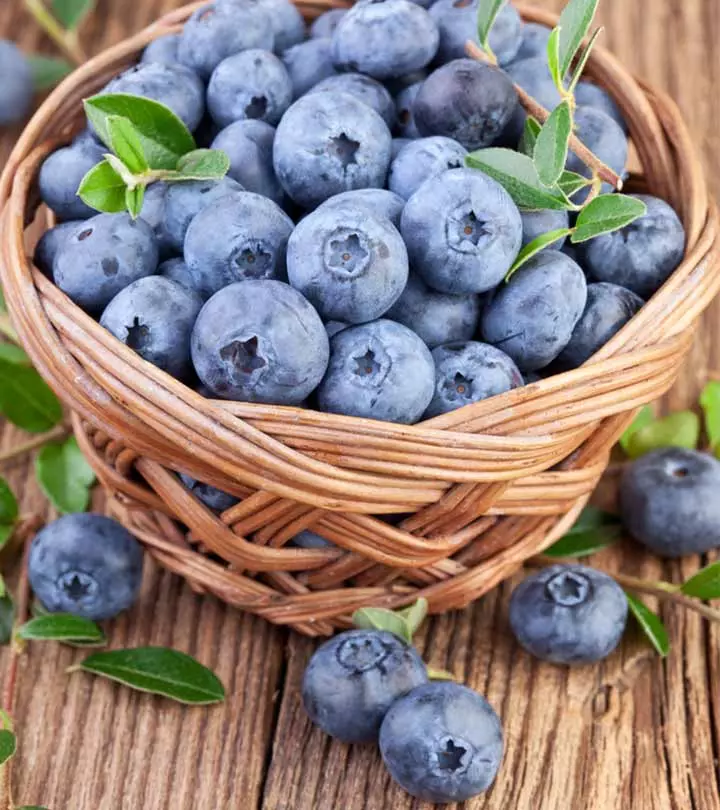
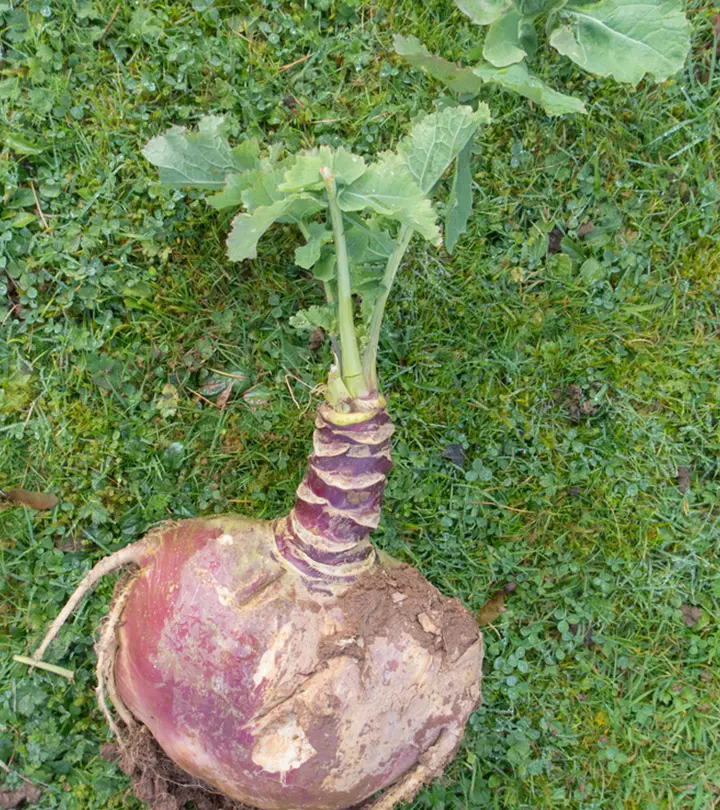
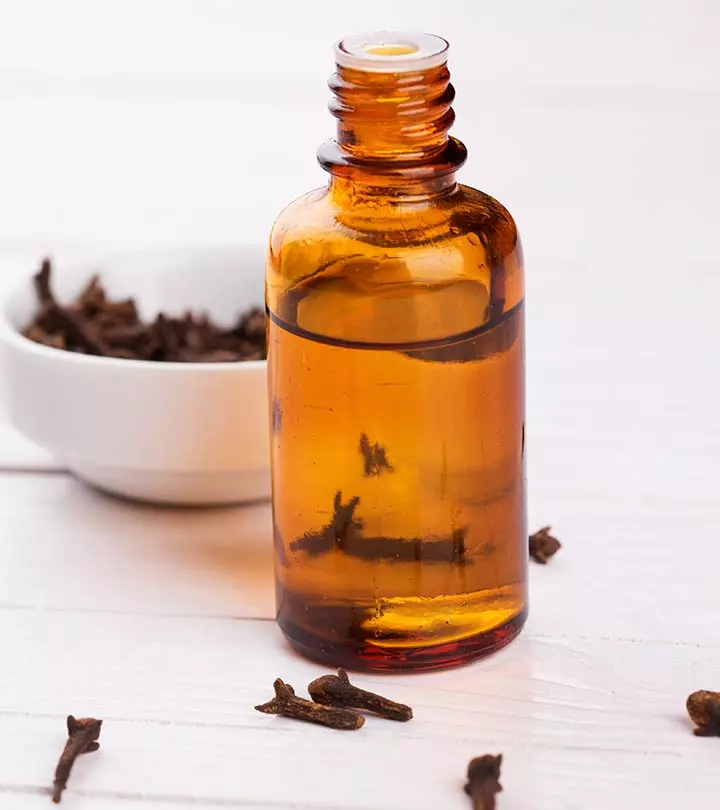
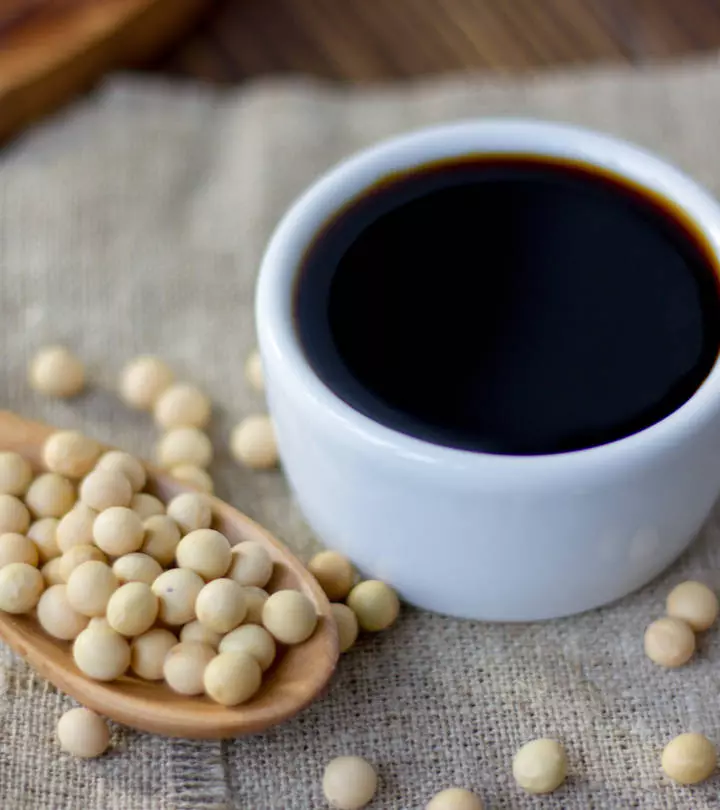
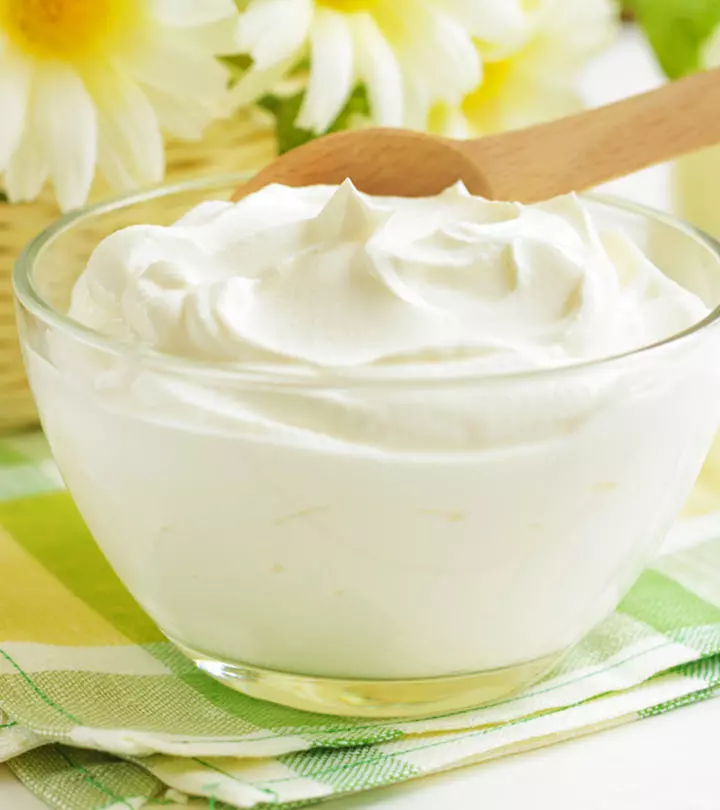
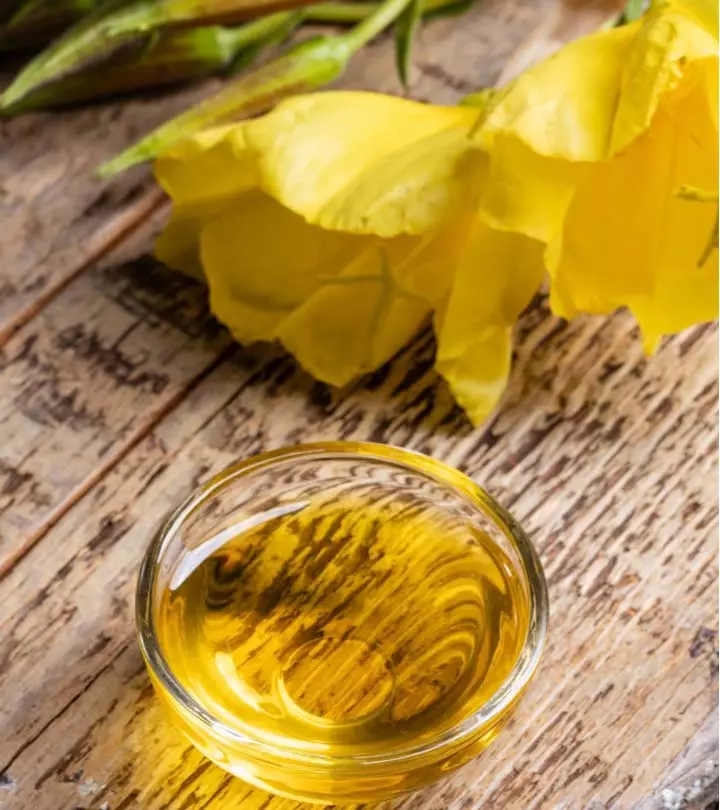
Community Experiences
Join the conversation and become a part of our empowering community! Share your stories, experiences, and insights to connect with other beauty, lifestyle, and health enthusiasts.